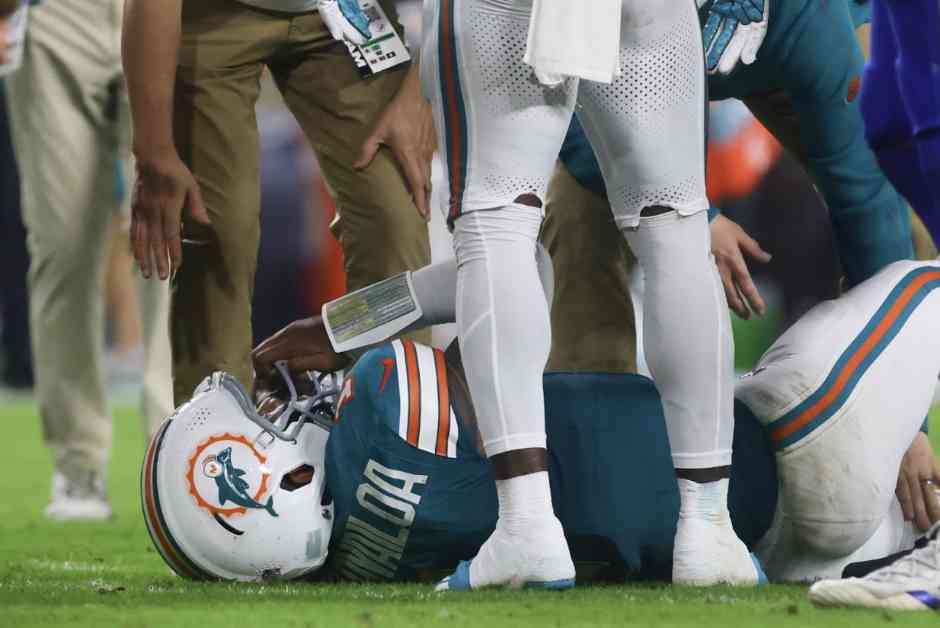Tua Tagovailoa, the star quarterback for the Miami Dolphins, found himself in a familiar and concerning situation during a recent Thursday Night Football game. After a collision on the field, Tagovailoa exhibited symptoms of a concussion, his third known one in the NFL. This incident has sparked discussions about his future in the league, with former players and analysts weighing in on whether retirement should be a consideration for the young athlete.
Peer Advice and Concerns
Following the incident, notable figures in the football community, including former NFL players Shannon Sharpe and Dez Bryant, took to social media to express their concerns about Tagovailoa’s health and future in the sport. Sharpe emphasized the importance of considering the long-term effects of multiple concussions on Tagovailoa’s well-being, urging him to prioritize his health over his career. Bryant echoed similar sentiments, calling for the NFL to take action in protecting Tagovailoa from further harm.
These sentiments were further echoed by other former players and analysts, such as Tony Gonzalez and Louis Riddick, who raised questions about whether Tagovailoa should continue playing in the NFL. The consensus among these individuals is clear: Tagovailoa’s health and safety should be the top priority, even if it means stepping away from the game.
History of Concussions
Tagovailoa’s history of concussions is a significant factor in the ongoing discussion surrounding his future in football. Having already experienced multiple concussions in his brief NFL career, as well as during his time at Alabama, there are legitimate concerns about the potential long-term effects on his health. The repeated head injuries have raised red flags for many in the football community, prompting calls for Tagovailoa to seriously consider the impact of his playing career on his overall well-being.
Despite his resilience and determination to continue playing, Tagovailoa’s family has also expressed concerns about his health and safety. Reports indicate that his mother had previously urged him to reconsider his playing career, highlighting the seriousness of the situation. With each concussion, the stakes become higher, and the decision to continue playing becomes more complex.
Health and Longevity
The debate surrounding Tagovailoa’s future in football extends beyond just his ability to continue playing. It raises broader questions about the impact of concussions on athletes’ long-term health and well-being. As studies on Chronic Traumatic Encephalopathy (CTE) continue to shed light on the risks associated with repetitive head injuries, the conversation around player safety has become increasingly urgent.
For Tagovailoa, the decision to retire would not only impact his career but also set a precedent for how the NFL addresses player safety moving forward. As more players speak out about the importance of prioritizing health over the game, the league may need to reevaluate its approach to handling concussions and protecting its athletes from unnecessary risks.
In conclusion, Tua Tagovailoa’s recent concussion raises important questions about the intersection of player safety, career longevity, and the future of football. As discussions around his potential retirement continue to unfold, it is crucial to prioritize his health and well-being above all else. The decision he ultimately makes will not only shape his own future but also influence how the NFL addresses player safety in the years to come.
